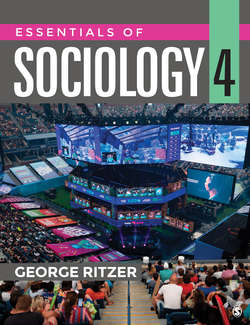Читать книгу Essentials of Sociology - George Ritzer - Страница 125
На сайте Литреса книга снята с продажи.
Summary
ОглавлениеCulture encompasses the ideas, values, norms, practices, and objects that allow a group of people, or even an entire society, to carry out their collective lives with a minimum of friction. Values are the general, abstract standards defining what a group or society as a whole considers to be good, right, or important. Norms are the rules that guide what people do and how they live. Culture has material and symbolic elements. Material culture encompasses all the objects and technologies that are manifestations of a culture. Symbolic culture, the nonmaterial side of culture, is best represented by language.
We are surrounded by cultural differences. Subcultures include people who may accept much of the dominant culture but are set apart from it by one or more culturally significant characteristics. Countercultures are groups of people who differ in certain ways from the dominant culture and whose norms and values may be incompatible with it. Culture wars pit one subculture or counterculture against another or against the dominant culture.
Many societies tend to be ethnocentric—those living in them believe that their own culture’s norms, values, and traditions are better than those of other cultures. In many cases, newcomers are expected to assimilate, or to replace elements of their own culture with elements of the dominant culture. Groups that do not want to assimilate entirely may engage in identity politics, or try to use their power to strengthen the position of the cultural groups with which they identify. A society that values multiculturalism accepts and even embraces the cultures of many different groups and encourages cultural diversity. Multicultural societies often embrace cultural relativism, or the belief that there are no cultural universals.
Key forms of culture are global culture, consumer culture, and cyberculture.
